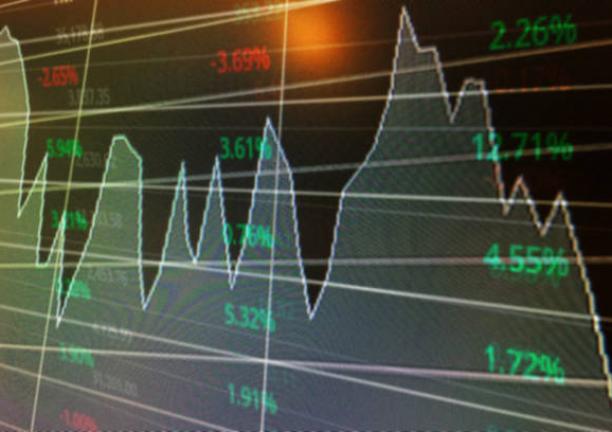The Bottom Line: DWS is under investigation by various regulatory bodies regarding its ESG investing practices but investors in various ESG funds should exercise restraint.
DWS Group is under investigation by the Securities and Exchange Commission (SEC), federal prosecutors and BaFin regarding its ESG investing practices but investors in various ESG funds should exercise restraint
Based on reporting in the Wall Street Journal on August 25th, Deutsche Bank AG’s asset-management arm, DWS Group, is under investigation by the Securities and Exchange Commission (SEC) and federal prosecutors over representations the firm made regarding the use of sustainable investing criteria to manage its assets. The probes, now expanded to include the Federal Financial Supervisory Authority (BaFin) of Germany that supervises banks and financial services providers, are in response to claims made by a discharged former head of sustainability at DWS that the firm misrepresented its ESG credentials to clients. The regulatory bodies will not comment on their investigations at this time. In response, however, DWS Group issued a statement that while it does not comment on questions relating to litigation or regulatory matters, the asset manager stands by its annual report disclosures regarding its ESG activities, it firmly rejects the allegations being made by the former employee and it also reiterates DWS’s long tradition of sustainable and responsible investing going back well over 20 years. This isn’t the first time that Deutsche Bank has been the subject of scrutiny by various regulatory bodies. Since the financial crisis alone, the bank has been involved in a series of investigations, probes and settlements resulting in substantial payments of penalties and fines. With about 25% of assets under management sourced to various investment product offerings in the Americas and at least $36 billion in various sustainable mutual funds and ETFs¹, a question that DWS fund investors are likely to be asking is what actions, if any, should be taken at this time, particularly if they are invested in ESG investment products. While their product risk exposures vary by product type, regardless of their investments, our view is that investors should exercise restraint, monitor further developments and wait for more definitive information either prior to or at the conclusion of the investigations. In the meantime, they should refrain for expanding their investments in these product offerings until the investigations have been completed.
Ranked among the top 30 firms, publicly listed DWS Group is one of the world’s leading asset managers
DWS Group is a publicly listed asset manager trading on the Frankfurt Stock Exchange that is still largely owned by Deutsche Bank (79.49%). In addition, Nippon Life Insurance Corp. owns 5.0% and the rest, or 15.51%, is in the form of public float. DWS is one of the world’s leading asset management firms, ranking in the top 30 firms as of 2020. It employs about 3,500 employees worldwide and oversees $962.5 billion of assets under management (as of March 31, 2021) of which 44% is sourced to retail investors and 56% to institutional investors. About 25% of the firm’s assets are domiciled in the Americas, including conventional and sustainable mutual funds and ETFs².
Deutsche Bank has been involved in a series of controversies that have led to expensive settlements and the payment of hefty fines since the financial crisis of 2007-2009 alone
The regulatory probe is not a first for Deutsche Bank. The bank has been involved in a series of controversies that have led to expensive settlements and the payment of hefty fines since the financial crisis of 2007-2009 alone. While not a complete list, these include cases involving misleading information about the risks associated with auction rate securities, fraudulent tax-shelters, LIBOR manipulation, foreign-exchange and money laundering violations, and poor risk management practices. It should be noted that none of these activities involved the asset management arm of the bank and investors may also take some comfort in the knowledge that at least one ESG rating firm, namely MSCI, maintains an ESG rating of single A on Deutsche Bank. According to MSCI, this third from the top rating reflects a company with a mixed or unexceptional track record of managing the most significant ESG risks and opportunities relative to industry peers–58 companies in the investment banking & brokerage industry. In the end, investors may have varying views on how to factor the past reputation of Deutsche Bank into their decisions either as to investing in or avoiding investment products offered by its investment management arm.
In the US, DWS offers a variety of sustainable equity, fixed income and money market mutual funds as well as ETFs that fall into sustainable investing categories stratified into three levels of ESG qualification and analysis
In the US, DWS offers a variety of sustainable equity, fixed income and money market mutual funds and ETFs that fall into sustainable investing categories stratified into three levels of ESG qualification and analysis, as detailed in Table 1. Each category potentially exposes investors to varying levels of product risk.
Index-tracking funds
DWS, through its subsidiary DBX Advisors LLC, offers ten Xtackers sustainable equity and fixed income index tracking ETFs with $5.3 billion in assets as of August 31st. Investors in index tracking funds should be the least concerned about possible deviations from the fund’s sustainable investing undertakings. This is due to the fact that index tracking funds are bound by the sustainable investing qualification criteria adopted by the index provider, typically an independent party, that in the case of DWS Xtrackers index funds include indices created and maintained by independent parties ISS, J.P. Morgan, MSCI and S&P Global. Refer to Table 1 for an illustration of the stock selection criteria imposed by the Xtrackers MSCI USA ESG Leaders Equity ETF.
Actively managed funds that explicitly integrate ESG
Investors in these funds are slightly more exposed to possible deviations from the fund’s sustainable investing undertakings but less so than the third category of funds described below. Three equity-oriented mutual funds and four money market funds, consisting of 26 share classes, with $1.7 billion in net assets as of August month-end, have each explicitly adopted ESG integration criteria in investment decision making. Each fund’s sustainable investment criteria is set forth in the fund’s prospectus. While variations in the implementation of their ESG integration approach are possible, these funds are less likely to deviate from the application of their ESG integration criteria in investment decision making as they would risk violating their obligations under the terms of each fund’s prospectus. Refer to Table 1 for an illustration of the stock selection criteria imposed by the DWS ESG International Core Equity Fund.
Actively managed funds that may integrate ESG
DWS offers at least 26 mutual funds with $29.3 billion in net assets that fall into this category. Investors in this category of funds may be the most vulnerable to misrepresentations regarding ESG efforts due to the vague nature of the commitment to integrate ESG. Refer to Table 1 for an illustration of the ESG integration language adopted by the DWS Capital Growth Fund.
What actions, if any, should be taken at this time by DWS mutual fund and ETF investors?
At this point in the investigations, regardless of the fund category, our view is that investors should exercise restraint, monitor further developments and wait for more definitive information either prior to or at the conclusion of the investigations. In the meantime, they should refrain for expanding their investments in these product offerings until the investigations have been completed.
| Sustainability Investing Practices | Examples of funds that fall into the described category |
| Index tracking funds that are bound by the qualification criteria adopted by the index provider. Different index providers will apply different qualification criteria. For example, the MSCI USA ESG Leaders Equity ETF uses MSCI ESG Ratings, MSCI ESG Controversies and MSCI Business Involvement Screening Research to determine index components. These vary across index providers and ESG rating firms, and the following example applies to the Xtrackers MSCI USA ESG Leaders Equity ETF. – MSCI ESG Ratings, which indicates how well companies manage their ESG risks and opportunities using a even point scale, ranging from ‘AAA’ to ‘CCC.’ Existing constituents Existing constituents are required to have an MSCI ESG rating of BB or above to remain in the index, and companies that are currently not constituents of the Underlying Index (index constituents in the corresponding conventional index from which index ESG index members are selected) are also required to have an MSCI ESG rating of BB or above to be considered eligible for addition. – MSCI ESG Controversies provides assessments of controversies concerning the negative ESG impact of company operations, products and services. A controversy case is defined as an instance or ongoing situation in which company operations and/or products allegedly have a negative environmental, social, and/or governance impact. A case is typically a single event such as a spill, accident, regulatory action, or a set of closely linked events or allegations such as health and safety fines at the same facility, multiple allegations of anti-competitive behavior related to the same product line, multiple community protests at the same company location, or multiple individual lawsuits alleging the same type of discrimination. MSCI ESG Controversies score companies on a scale of 0 to 10, with 0 being the most severe controversy. Existing constituents of the Underlying Index are required to have an MSCI ESG Controversies Score of 1 or above to remain in the index, while companies that are currently not constituents of the Underlying Index are required to have an MSCI ESG Controversies Score of 3 or above to be considered eligible for addition. -MSCI ESG Business Involvement Screening Research aims to enable institutional investors to manage ESG standards and restrictions reliably and efficiently. Companies that are involved in specific business activities which have high potential for negative social and/or environmental impact, such as alcohol, gambling, tobacco, nuclear power, fossil fuel extraction, thermal coal power, conventional weapons, nuclear weapons, controversial weapons and civilian firearms, are ineligible for inclusion. |
Xtrackers MSCI USA ESG Leaders Equity ETF Xtrackers S&P 500 ESG ETF Xtrackers JPMorgan ESG USD HY Corp Bd ETF |
| Actively managed funds that have explicitly adopted an ESG integration approach in combination with various exclusions. Prior to considering financial information, the security selection process evaluates an issuer based on Environmental, Social and Corporate Governance (ESG) criteria. An issuer’s performance across certain ESG criteria is summarized in a proprietary ESG rating which is calculated by DWS International GmbH, an affiliate of the investment manager, on the basis of data obtained from various ESG data providers. Primarily issuers with an ESG rating above a minimum threshold determined by the DWS are considered for investment by the fund. The proprietary ESG rating for each issuer is derived from multiple factors, including: -Level of involvement in controversial sectors and weapons; -Adherence to corporate governance principles (including, but not limited to: composition, effectiveness and independence of the board of directors; remuneration; and relations with shareholders, including shareholder voting rights); -ESG performance relative to a peer group of issuers; and -Efforts to meet the United Nations’ Sustainable Development Goals. |
DWS ESG International Core Equity Fund DWS ESG Global Bond Fund DWS MMPS – DWS Money Market Fund |
| Actively managed funds that may but are not obliged to integrate ESG factors into decision making. Portfolio management may consider information about Environmental, Social and Governance (ESG) issues in its fundamental research process and when making investment decisions. |
DWS Capital Growth DWS Core Equity DWS Small Cap Growth |





